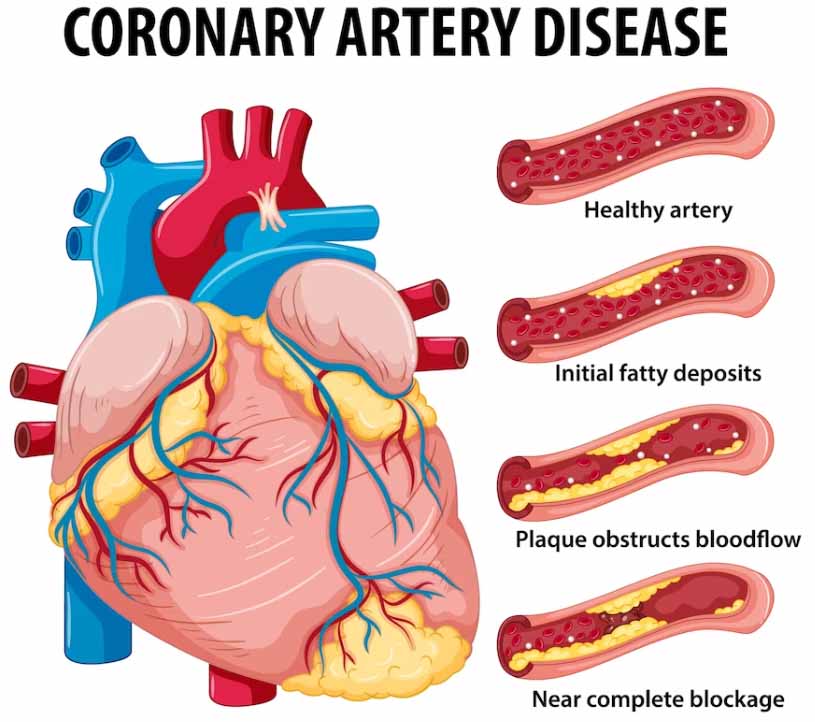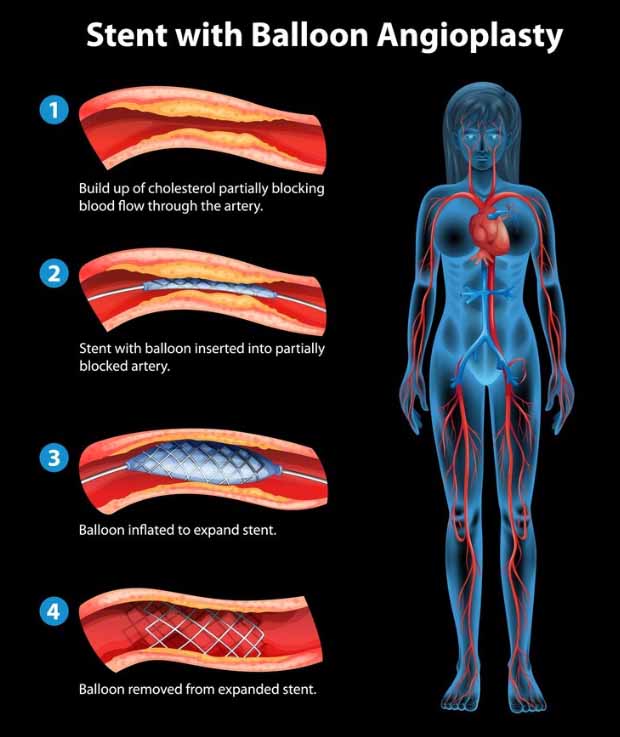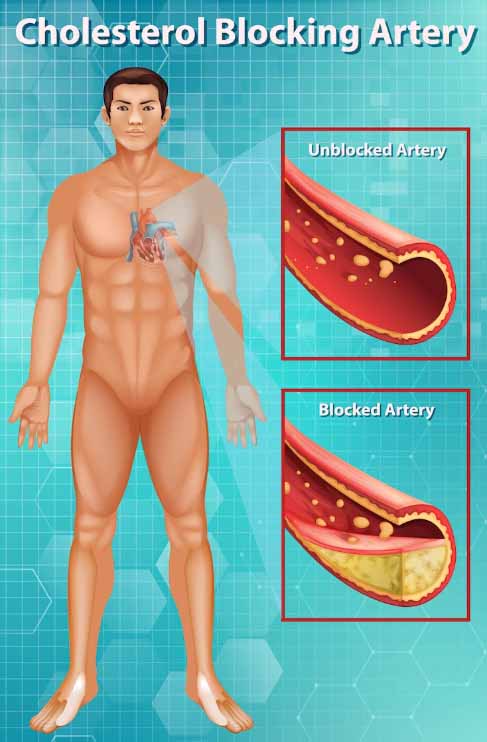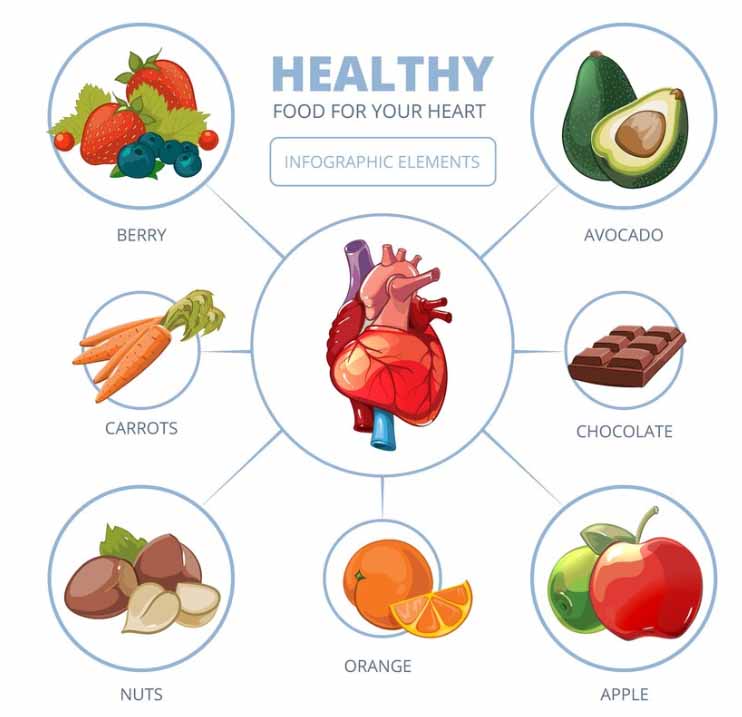Night owls, rejoice in the ability to burn the midnight oil, but a recent study throws some shade on your nocturnal ways. Researchers have revealed a surprising link between late-night habits and a potentially unhealthy condition: artery calcification.
What is night owl?
A “night owl” is someone who has a naturally late sleep-wake cycle and prefers to be active at night and sleep during the day. They typically:
- Stay up late: This can range from midnight to even dawn, with extreme night owls sleeping well into the morning.
- Sleep in: Due to their late nights, they often feel the need to sleep in later than the norm, sometimes well into the afternoon.
- Feel most energetic at night: While everyone experiences some dip in energy throughout the day, for night owls, their peak level of energy and alertness occurs during the nighttime hours.
- Find mornings difficult: Waking up early can be a struggle for night owls, leaving them feeling groggy, less productive, and even grumpy.
Table of Contents
What is artery calcification?

Imagine your arteries, the highways of your body, gradually filling with calcium deposits. This is artery calcification, and it’s not a pretty picture. These deposits can harden and narrow your arteries, increasing the risk of heart disease, stroke, and other cardiovascular problems.
Related articles : What causes Heart Attacks in Young People
Stiff Person Syndrome: Symptoms & Care Tips for 2023
Artery Calcification Treatment
While there’s currently no direct cure for artery calcification, there are strategies to manage the condition and its underlying causes, minimizing further progression and protecting cardiovascular health. Here’s a breakdown of the key approaches:
Medications:
- Statins: These drugs lower cholesterol levels, indirectly reducing plaque buildup and slowing down artery calcification.
- Blood pressure medications: High blood pressure can worsen arterial damage. Medications to control blood pressure are essential for protecting heart health.
- Antiplatelet drugs: These drugs, like aspirin, help prevent blood clots from forming and blocking arteries.
Advanced Procedures:
In some cases, depending on the severity and location of the calcification, interventional procedures may be considered:

- Balloon angioplasty and stenting: This procedure opens narrowed arteries by inflating a balloon and placing a stent to keep the artery open.
- Coronary artery bypass surgery: This surgery bypasses blocked arteries using healthy blood vessels from other parts of the body.
Prevention is key:
Early detection and management of risk factors like high cholesterol, blood pressure, diabetes, and obesity are crucial for preventing artery calcification in the first place. Regular checkups, healthy lifestyle choices, and proper control of underlying conditions can significantly reduce the risk of developing this condition and its detrimental consequences.
It’s important to remember that treatment strategies for artery calcification should be customized by a healthcare professional based on individual needs and underlying causes. Discussing your specific situation and exploring the best approach with your doctor is crucial for managing the condition effectively and protecting your cardiovascular health.
Artery Calcification Causes

Artery calcification, the buildup of calcium deposits in the arteries, has several contributing factors, some more potent than others. Here’s a breakdown of the key causes:
Chronic Diseases:
- High cholesterol: Over time, elevated levels of LDL (“bad”) cholesterol can accumulate in the artery walls, forming plaque. This plaque can calcify, hardening the arteries.
- High blood pressure: Sustained high blood pressure puts stress on the artery walls, damaging them and making them more susceptible to calcium deposits.
- Diabetes: Uncontrolled diabetes can lead to inflammation and damage to blood vessels, increasing the risk of calcification.
- Kidney disease: Chronic kidney disease often disrupts calcium and mineral metabolism, potentially contributing to artery calcification.
Lifestyle Factors:
- Smoking: This potent risk factor damages the inner lining of arteries, triggering inflammation and promoting plaque buildup and calcification.
- Diet: A diet rich in saturated and trans fats, cholesterol, and sodium can contribute to high cholesterol levels and blood pressure, indirectly promoting calcification.
- Physical inactivity: Lack of exercise hinders blood flow and circulation, potentially worsening existing cholesterol or blood pressure issues and contributing to artery damage.
- Obesity: Carrying excess weight increases the strain on the cardiovascular system, including the arteries, making them more prone to damage and calcification.
- Stress: Chronic stress can trigger inflammation and vascular damage, indirectly promoting artery calcification.
Genetic Predisposition:
While less common, some individuals have a genetic predisposition to higher rates of calcium metabolism or abnormalities in their artery walls, making them more susceptible to calcification.
Age: Generally, the risk of artery calcification increases with age as the natural wear and tear on the arteries accumulates.
Artery Calcification Diet

When it comes to managing or preventing artery calcification, diet plays a crucial role. While there’s no single “cure” that comes in a plate, choosing the right foods can significantly impact the underlying risk factors and contribute to a healthier cardiovascular system. Here’s how dietary choices can affect artery calcification:
Foods to Favor:
- Fruits and vegetables: These are packed with antioxidants and fiber, both of which help fight inflammation and protect blood vessels. Aim for a colorful mix like berries, leafy greens, cruciferous vegetables, and bell peppers.
- Whole grains: Whole grains reign supreme! Opt for whole-wheat bread, brown rice, quinoa, and oats instead of refined options. These provide sustained energy while lowering cholesterol levels and improving blood sugar control.
- Fatty fish: Rich in omega-3 fatty acids, salmon, tuna, mackerel, and sardines help reduce inflammation, improve blood flow, and lower triglyceride levels. Aim for two servings per week.
- Nuts and seeds: Almonds, walnuts, pistachios, and flaxseeds are excellent sources of fiber, healthy fats, and plant-based Omega-3s. They can lower cholesterol, improve blood pressure, and provide antioxidant benefits.
- Beans and legumes: Lentils, black beans, chickpeas, and kidney beans are low in fat and cholesterol but high in protein and fiber. They help regulate blood sugar and cholesterol levels, contributing to overall cardiovascular health.
- Olive oil and avocado: These sources of healthy fats can lower “bad” cholesterol (LDL) while raising “good” cholesterol (HDL), protecting arteries from damage. Use them in moderation as toppings or for cooking.
Foods to Limit:
- Saturated and trans fats: Found in fatty meats, fried foods, processed foods, and full-fat dairy, these fats contribute to plaque buildup and increase the risk of artery damage. Choose lean protein sources, bake or grill instead of frying, and opt for low-fat dairy products.
- Cholesterol: High cholesterol levels directly contribute to plaque formation. Limit egg yolks, organ meats, and shellfish, and choose lean protein sources.
- Added sugars and refined carbohydrates: These can lead to rapid blood sugar spikes and inflammation, potentially worsening underlying conditions like diabetes and contributing to artery damage. Choose whole grains over refined products, limit sugary drinks and sweets, and opt for natural sweeteners like fruits.
- Sodium: High sodium intake raises blood pressure, putting additional strain on the arteries. Read food labels carefully, limit processed foods, and cook more meals at home with less salt.
Additional Tips:
- Increase your water intake: Staying hydrated helps blood flow and flushes out toxins. Hydrate right: 8-10 glasses of water daily.
- Cook more at home: This gives you greater control over ingredients and portion sizes, allowing you to make healthier choices.
- Read food labels: Pay attention to serving sizes, saturated and trans fat content, cholesterol, and sodium levels.
- Talk to your doctor or a registered dietitian: They can create a personalized dietary plan based on your individual needs and risk factors.
Combining smart food choices with regular exercise, stress management, and managing underlying medical conditions like high blood pressure or diabetes is crucial for protecting your arteries and promoting overall cardiovascular health.
The Night Owl and the Arteries:
The Swedish study, published in the Journal of the American Heart Association, followed over 700 participants for an average of six years. They assessed sleep patterns and measured the amount of calcium buildup in the coronary arteries through CT scans. The findings were startling:
- Night owls, who slept after midnight most often, had almost twice the amount of artery calcification compared to early birds.
- This association remained even after considering other factors like diet, exercise, and smoking habits.
Why should night owls worry?
The exact mechanism linking late sleep to artery calcification is still unclear, but researchers speculate it may be due to disrupted circadian rhythms. Our internal clock, which regulates sleep-wake cycles, also influences hormones and other biological processes. Late-night disruptions may throw these processes off, leading to inflammation and other cardiovascular risks.
What can night owls do?
Don’t despair, nocturnal friends! While the study raises concerns, it doesn’t mean all late sleepers are doomed to clogged arteries. Here are some tips:
- Prioritize sleep: Aim for at least 7-8 hours of quality sleep even if it means adjusting your schedule. Regular sleep patterns can help regulate your circadian rhythm.
- Minimize stimulants: Avoid excessive caffeine and alcohol, especially close to bedtime. These can disrupt sleep and further aggravate underlying conditions.
- Maintain a healthy lifestyle: Exercise regularly, eat a balanced diet, and manage stress to promote overall cardiovascular health.
- Consult a doctor: If you’re concerned about your sleep patterns or cardiovascular health, talk to your doctor. They can assess your individual risk factors and recommend personalized strategies.
A Call for Further Research:
While this study sheds light on a potential link between night owl habits and artery calcification, it’s important to remember that it’s observational and further research is needed to solidify the connection and understand the underlying mechanisms.
The Takeaway:
Being a night owl doesn’t have to be a health hazard. By prioritizing sleep, maintaining a healthy lifestyle, and talking to your doctor, you can navigate the night and keep your arteries flowing smoothly. Remember, even owls can adjust their flight patterns for a healthier sunrise!



